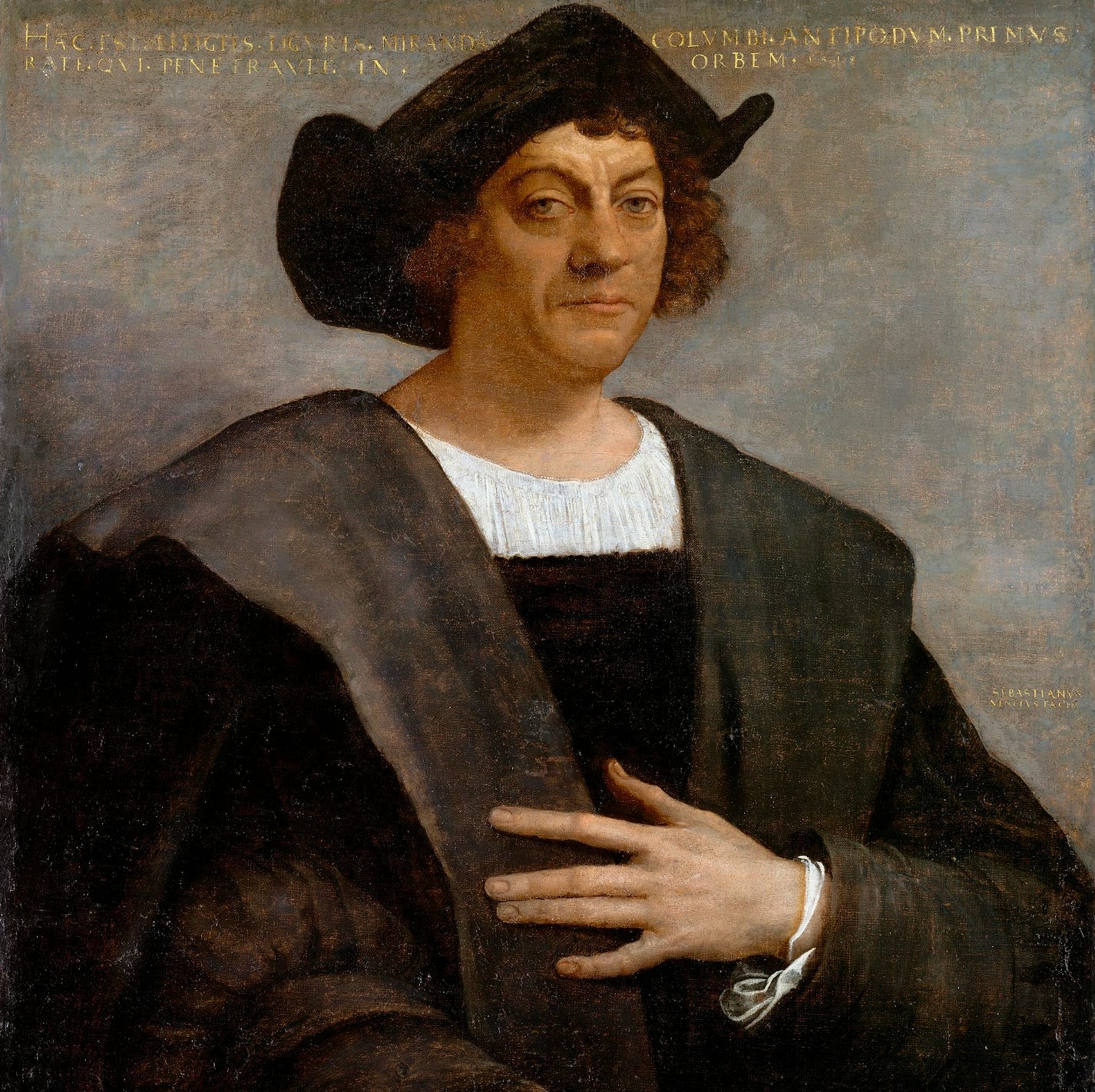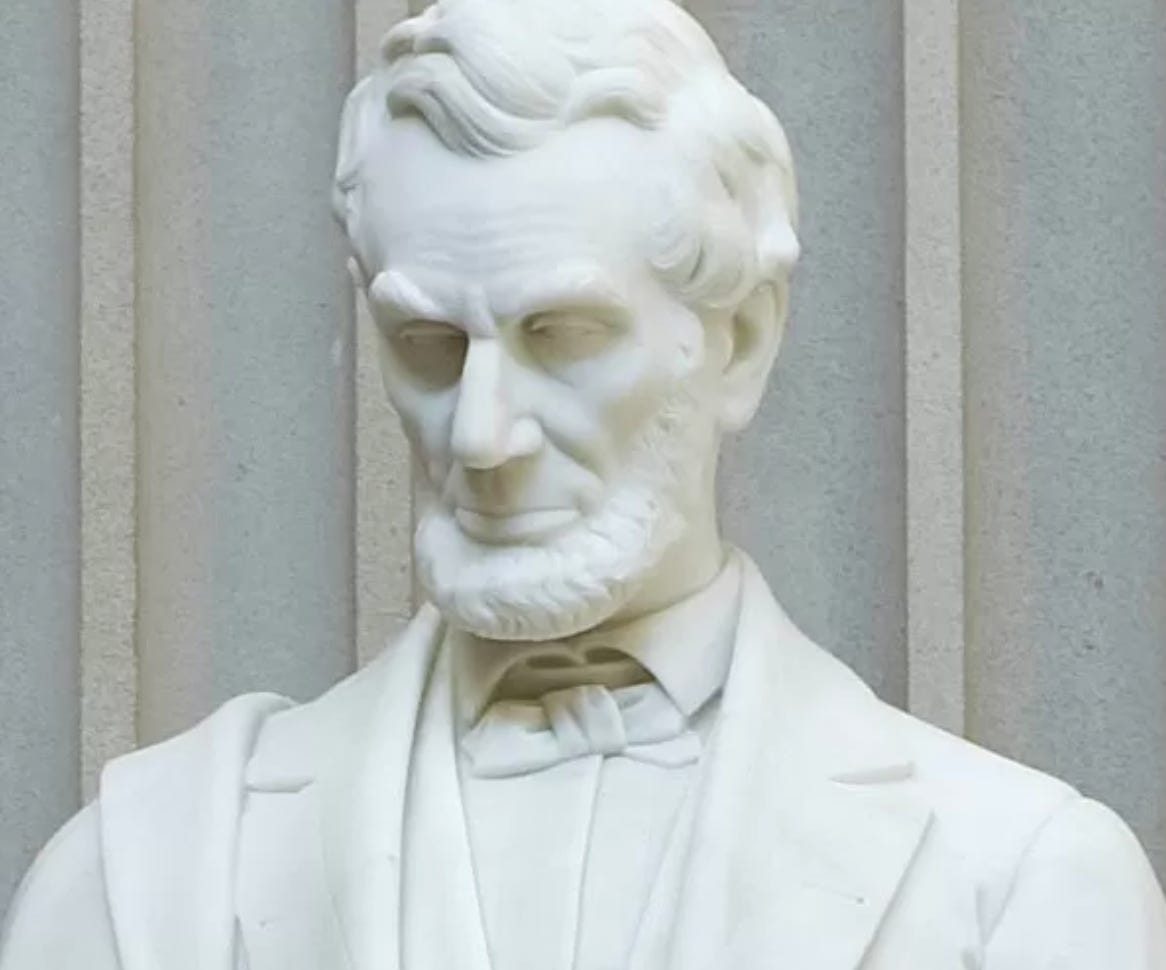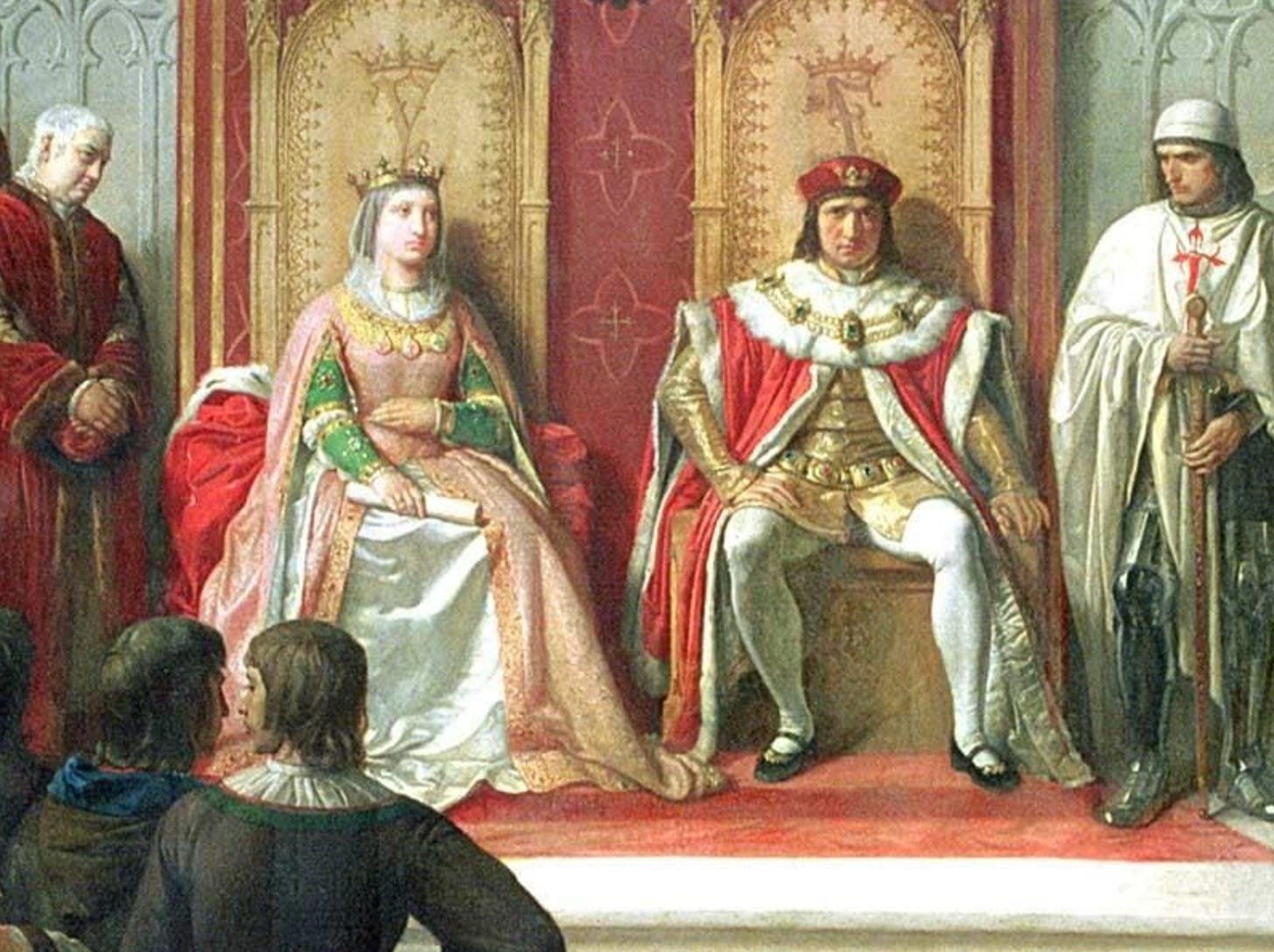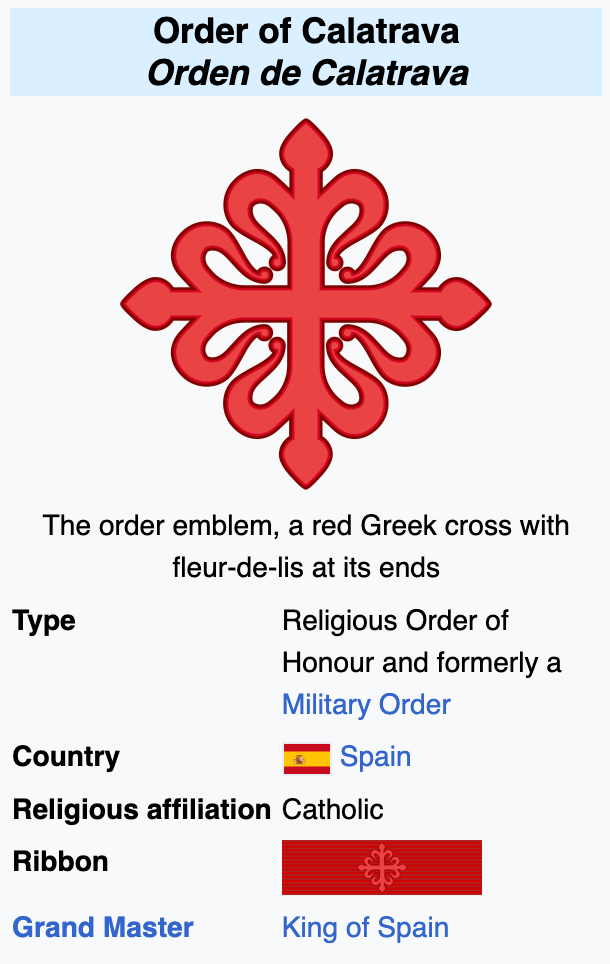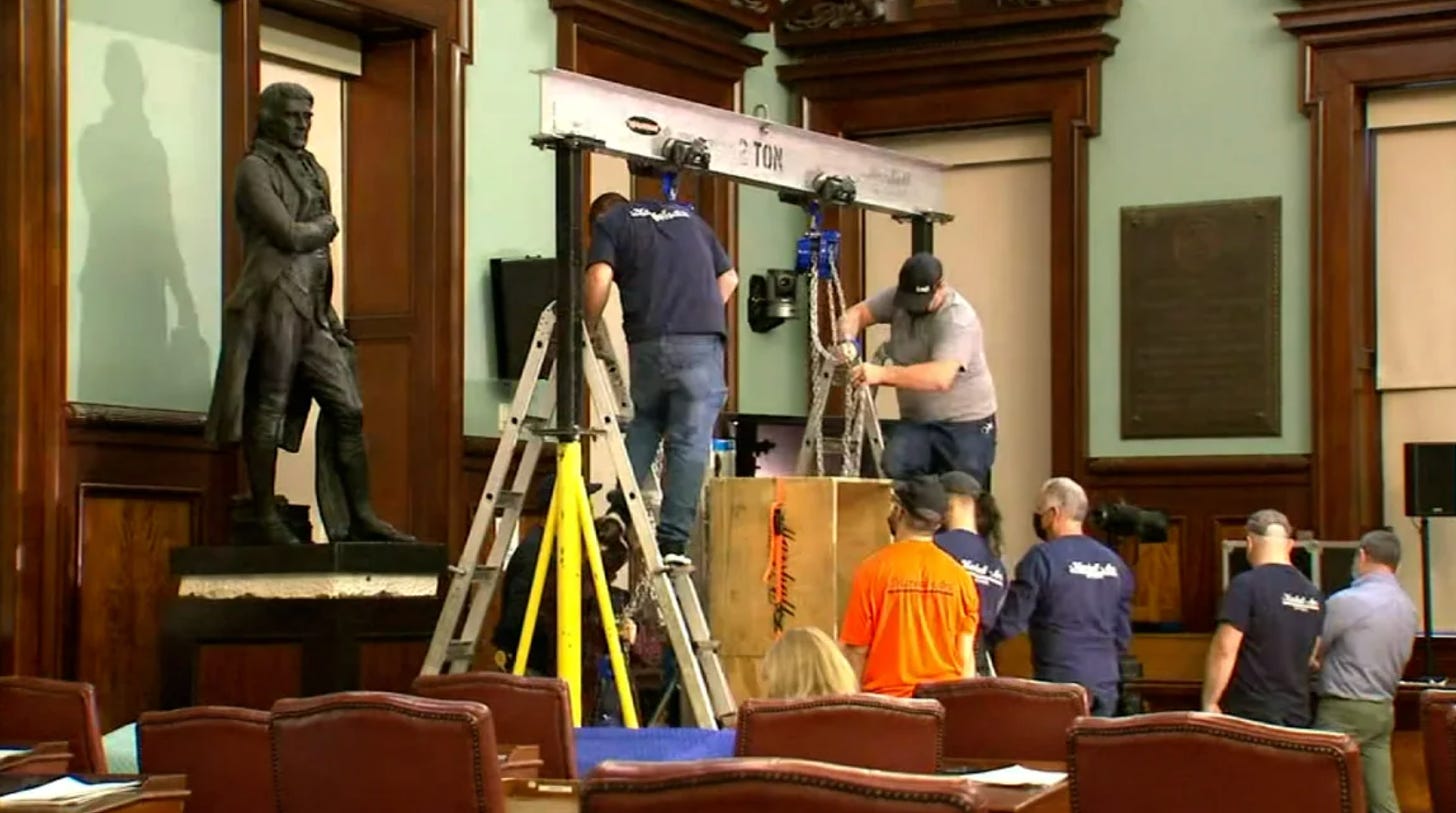Happy Columbus Day!
Columbus Day has taken a beating during the last decade of woke insanity and last 25 years of woke’s older but equally stupid philosophical sibling… political correctness.
The 1400s and 1500s were a brutal time to be alive. The common theme between all cultures, Western, Eastern, Asian, African, and everything in between, was the diminutive value of life. Differences in culture, history, and religion, ensured outsiders were viewed as a threat, and often times the only solution was oppression, subjugation, and warfare. Class structures ensured cultural insiders understood their worthlessness in comparison to others sharing their national and ethnic background.
The Magna Carta was signed in 1215, limiting the British King’s arbitrary authority over barons and land owners, but the concept of universal human rights was still in its infancy. It really wasn’t until the late 1700s that British common law, Judaeo-Christian traditions, and the unique character of American colonies started to extend the concept of inalienable rights. We were still working out all the kinks in the system long after the US Civil War.
About the time Columbus sailed westward seeking new trade routes to India, China, Japan, and the Spice Islands. the Portuguese and Ottoman empire were struggling for sea and trade dominance. The British and Dutch were extending their power, and the Spaniards represented a powerful competitor on the world stage.
In the 1400s-1500s Native Americans were waging war against Native Americans, while East Asian States dealt with internal power struggles and the influx of foreign influence and trade in the mid-1500s. Mercantilism and colonialism were on the rise, the slave trade flourished in all cultures, and violence was still the norm… Not the exception.
Viewed from current day standards… All people were barbaric.
Columbus was thought to be from Genoa, Italy, a naval powerhouse suffering from the same political and societal machinations grinding between ratchet gears and pawls on the international stage. In the late 1400s and 1500s, Genoa was the subject of power struggles, while Italy remained a collection of States with differing allegiances, domestic conflict, and foreign incursions. Other great powers were struggling for Maritime and trade dominance, but by the mid 1500s the European renaissance started to blossom.
The roots of that flower were planted in Italy.
Think of the visionary drive and determination it must have taken to contemplate a risky journey westward towards India and China, based on one’s hypothesis that there was an as-of-yet undiscovered navigable route. How does one convince a crew of seasoned sailors that traveling into the unknown with just the supplies one can carry will be enough to sustain their dangerous voyage? How does one convince… oneself?
Columbus was not just a visionary, he was brave. Even in familiar water, the high seas were a dangerous place in the late 1400s, but casting off into the unknown carried with it logarithmic increases in unpredictable risks. Columbus was a man germinated in pre-enlightenment soil by the same political forces and Italian culture that planted the seeds of intellectual freedom throughout Europe. That pre-enlightenment soil was also finely suited for entrepreneurial botany.
Although highly trained in navigation and sea craft, Columbus lacked the funds for an ambitious plan to sail west and discover new trade routes. He sought out patronage and eventually secured audience with representatives of the heads of State. This was no small task for a man of limited means and name recognition. Despite refusals from Portugal, England, and France, the Spanish monarch Ferdinand II and his wife Isabella funded his journey, with the mandate to open new trade routes with the East, which had been stymied by the Ottomans and other competitors.
Men are flawed.
No doubt, Columbus had his flaws as well, but one would be hard pressed given the historical and cultural backdrop to consider his achievements as anything less than extraordinary. I am no fan of hero worship, nor am I prone to idolizing historical figures. One’s character and the reasons for one’s behavior has more depth than the deepest recesses of the Mariana Trench. Ignoring the less than favorable depictions of Columbus and his character is like examining the meniscus, while ignoring the swirling riptides driving the currents of the abyss.
By at least one account, Columbus was not an honorable man.
In 2005, Spanish archivist Isabel Aguirre in the General Archive of Simancas discovered an account depicting Columbus as a brutal dictator during his time as Viceroy of Hispaniola or the current day Dominican Republic. The Guardian, a British Publication, published an article detailing what had been discovered.
Christopher Columbus, the man credited with discovering the Americas, was a greedy and vindictive tyrant who saved some of his most violent punishments for his own followers, according to a document uncovered by Spanish historians.
As governor and viceroy of the Indies, Columbus imposed iron discipline on the first Spanish colony in the Americas, in what is now the Caribbean country of Dominican Republic. Punishments included cutting off people's ears and noses, parading women naked through the streets and selling them into slavery.
"Columbus' government was characterized by a form of tyranny," Consuelo Varela, a Spanish historian who has seen the document, told journalists.
One man caught stealing corn had his nose and ears cut off, was placed in shackles and was then auctioned off as a slave. A woman who dared to suggest that Columbus was of lowly birth was punished by his brother Bartolomé, who had also travelled to the Caribbean. She was stripped naked and paraded around the colony on the back of a mule.
"Bartolomé ordered that her tongue be cut out," said Ms Varela. "Christopher congratulated him for defending the family."
The evidence has been found in a previously lost report drawn up at the time for the Spanish monarchs as they became worried by growing rumors of Columbus' barbarity and avarice. The document was written by a member of an order of religious knights, the Order of Calatrava, who had been asked to investigate the allegations against Columbus by Queen Isabella and King Ferdinand, who ruled Spain together at the time.
Timing is everything…
The account was written in 1500 by Francisco de Bobadilla, a nephew to one of the nobles that had funded the expedition in 1492. Unlike Columbus, he was a man of importance in Spain. In his thirties he was named Knight Commander of the Order of Calatrava (OOC) in Auñón, and this order held considerable political, military, and economic influence in Spain and Portugal, as a result of their successful military campaigns against the Moors. There were, however, internal leadership schisms splitting their favor between Spain and Portugal.
Over the course of 675 years, the Portuguese and Spanish had sought to reclaim Iberia from the Moors, and OOC played a very important part as one of four Spanish Orders. The leadership differences ended in 1482 with the succession of OOC leadership, essentially making them an arm of Spanish statecraft. The conquest of Grenada in 1492, marked the end of the Reconquista which had begun in 817 with the battle of Covadonga, further cementing OOC’s role in defending Spanish interests.
The defeat of the Moors meant the OOC lost their autonomy as well.
In 1500, Francisco de Bobadilla was dispatched to Hispaniola to investigate Columbus’ crimes. Columbus and his brother were sent back to Spain, charged with failures of governance, bribery, and abuses of authority. The charges were never dismissed, but the court ultimately decided that Columbus did not deserve imprisonment and he was freed. Columbus made a subsequent fourth trip back to the New World.
The inflammatory report detailing numerous alleged crimes uncovered by Spanish archivist Isabel Aguirre in the General Archive of Simancas was the documentary evidence used in the prosecution of Columbus. Bobadilla’s motives are not entirely known, however, he replaced Columbus as Viceroy of Hispaniola, a highly lucrative position, casting some doubt on the validity of the claims being levied.
This was done with the backdrop of the Spanish Inquisition, during a period where there was significant anti-Italian sentiment in Spain and Portugal. The rule of law was debatable and Bobadilla made sure to arrive to the New World with a sizable contingent of military. It didn’t set conditions for honest dialogue.
So far, nobody has disputed the authenticity of Bobadilla’s written record, nor have people paid much attention to the book, La caída de Cristóbal Colón: El juicio de Bobadilla, written by Columbus-expert, Consuelo Varela, on the same subject. It is troubling that almost everything can be found on the internet, but the actual documents are still not available to the general public for review.
Authentic documents and authentic events are two totally different things. The prosecutorial evidence was written by someone who conveniently stood to gain considerable wealth if an Italian nobody could be pushed aside.
Living in the age of Woke…
In the age of woke, we hear about the crimes of Columbus, because they are easy to believe. I think everyone likes a good story with villains and heroes. Weren’t all white men making their way to the New World bigots? By today’s standards they were, but the world in which Columbus lived was brutal, and biased distinctions were even being levied against other Europeans. No one talks about a man who may have been targeted by jealous rivals because he was successful. Why don’t the people who claim to want to end discrimination, acknowledge the possibility that Columbus may have been the target of discrimination and Machiavellian plotting?
Aside from their inability to recognize their own hypocrisy, I tend to believe they don’t want a thorough investigation. Accusations that loosely fit the current social fads, like political correctness and wokism, quickly get incorporated into the social zeitgeist. The bumper sticker that Columbus was a villain fits a narrative, even if the details don’t add up and are cartoonishly one-dimensional. Next thing you know, his enormous contributions are being ripped from our text books faster than you can tear down a Thomas Jefferson statue.
… You know, because Thomas Jefferson was a villain too.
Don’t believe a subtle misrepresentation can get thoroughly incorporated into the social fabric of society? How about a bald-faced lie?
How many of you remember hearing that Columbus fearlessly sailed westward despite the distinct possibility and belief that his ship would tip over the edge of the earth? Anyone recall that little gem?
I do.
If you didn’t, you probably didn’t attend Cleveland and Detroit public schools, but I know that was a thing. Never mind that Greek Philosophers surmised the spherical nature of our planet 2500 years prior to the birth of Christ. That lie persisted because of a good story teller.
Meet Washington Irving
Just like Columbus greatly underestimated the circumference of the earth, Irving greatly over-estimated his close proximity to a universal belief in a flat earth. Perhaps that over-estimation was intentional. Like Columbus, he was both a flawed and great man. He was born in 1789 to Dutch immigrants living in New York, and he was the youngest of 11 children. He travelled Europe as a young man, gaining some renown and modest wages as an author before returning to the United States. He was most famous for Rip Van Winkle and The Legend of Sleepy Hollow, but his book The Life and Voyages of Christopher Columbus was a huge success as well.
The latter publication was supposed to be a historical recounting. Presumably to keep the reader engaged, there were a few exaggerations added to the narrative that persist to this day. Apparently, Irving felt it necessary to ensure the story was not just a man versus nature epic; he wanted to ensure the main character was also fighting against dangerous scientific dogma. The result was a persistent belief that highly skilled seafarers in the early modern era also believed they lived on a flat earth.
Hero worship is as bad as purposefully viewing historical figures through the filter of a modern day ethical framework.
Truth is hard, but worth preserving.
People seem to be hell-bent on destroying our unique history and culture. Native Americans suffered because of westward expansion. That is truthful, but it is a story told on every continent by every ethnic group throughout history. Our job is to accurately document what happened and do our best to fully understand the historical context that led to the founding of our great nation.
Italians were a pivotal part of that historical document. They brought us to these shores and later helped build this nation. Celebrating a flawed man who did great things does not dishonor Native Americans, nor does it mean we are ignoring the pain endured by the tribes that previously occupied the Americas.
I am profoundly grateful I was born in Cleveland and not on a farm somewhere in Germany, Britain, Sweden, or Ireland. Our nation established a system of government that has been imitated worldwide, because it had the radical notion that we all have a spark of divinity and our individual rights are inviolable. Those beliefs have taken a beating over the last few decades as well, but if we continue to celebrate the extraordinary men and women who built our country, flaws and all, I am optimistic for our future.
***Dedicated to Biagio, an American of mostly Italian descent and one of the many young people who represent the future of our great nation. He is Swedish, German, British, Welsh, Irish, Lithuanian, Polish, and Russian too… Pretty much 100% American.




